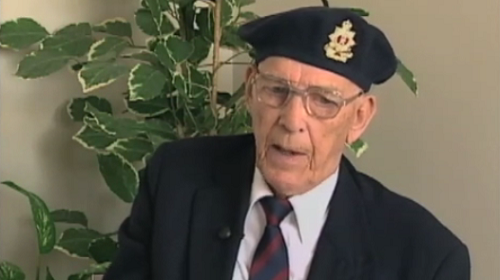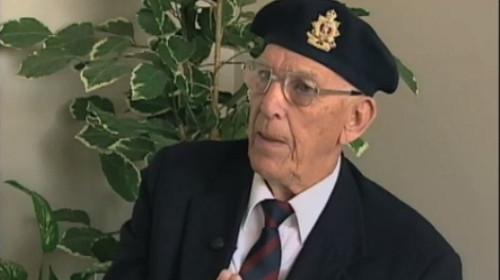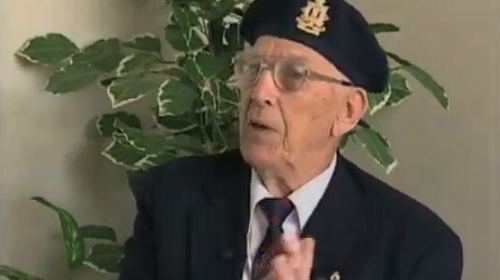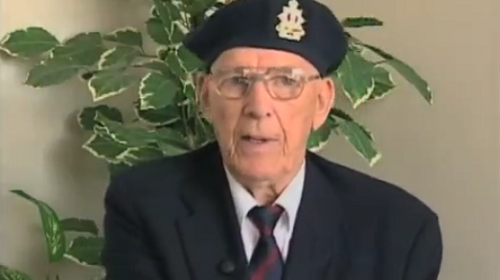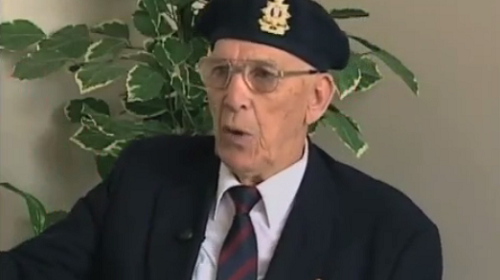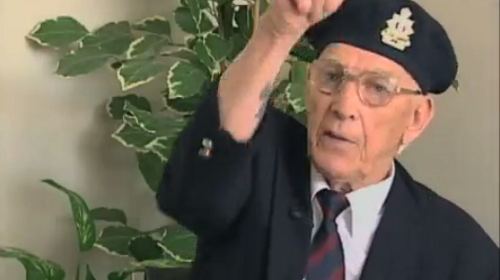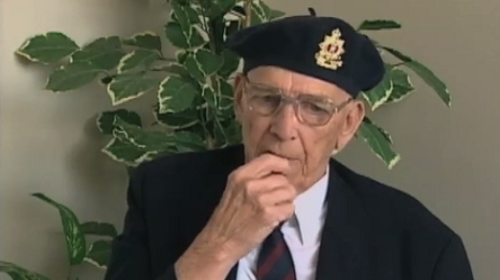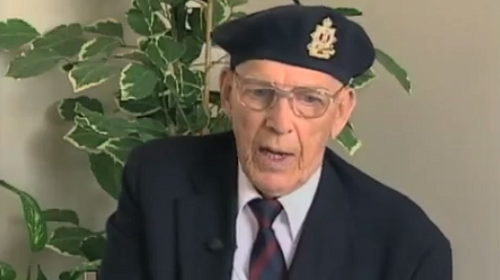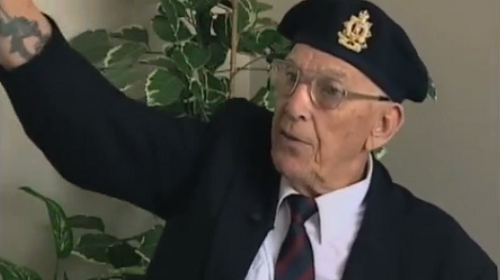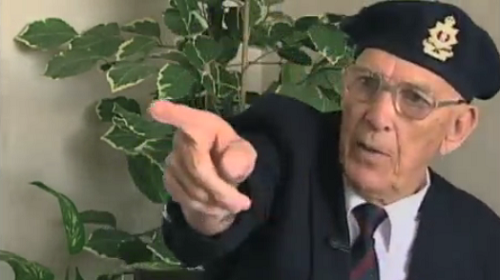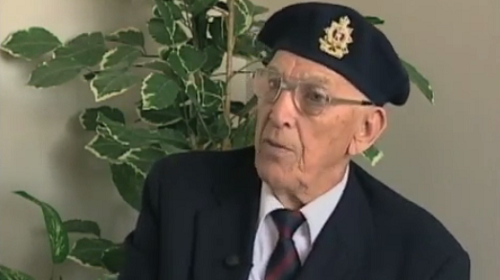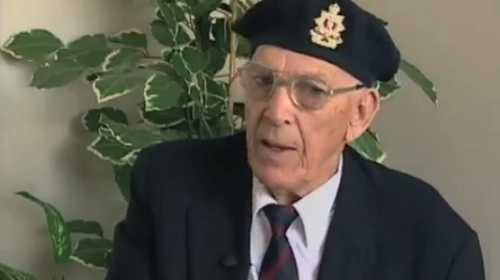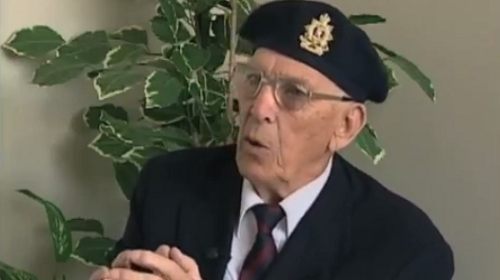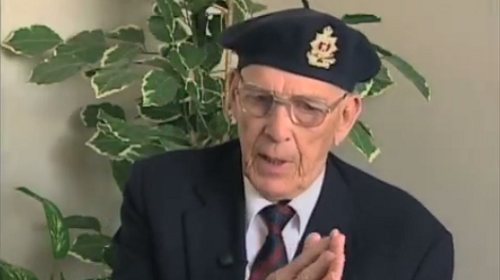Marching to the Camp
The Dieppe Raid
Marching to the Camp
Transcript
Five days and five nights in these stinking cars.
The latrine bucket was running all over the floor.
The stench was horrible, you could smell the men's wounds.
I wasn't wounded, I was, I don't know why, Pelletier wasn't wounded.
There's two of us, that's why we were going to escape.
We figured it was up to us, you know.
We had missed the bullets, they had missed us.
And, so, they pull the train, stop the train at Lansdorf,
the station nearest the prison camp and the first thing we see
as they threw the doors open, you know,
you were almost blind from being in the dark most of that time,
were Russian prisoners unloading an ammunition train
and the Germans were armed with bull whips.
That's the first thing we seen and I thought to myself,
the son of a bitch touches me with a bull whip
he's going to have to shoot me because I'll have him,
I'll go for him, see, nobody will use a bull whip on me.
These poor Russian prisoners just mere skeletons.
Unbelievable the way they treated the Russian prisoners.
So, they marched us to the camp,
we marched to the camp singing The Yanks are Coming.
I can't believe it, can't get over these guys, you know.
It was defiance, see, it was defiance
and the British could hear us in the camp, the Dunkirk guys.
So outside, of course, we were registered,
we have our mug shots, fingerprinted and given a number.
I was given 26212 and a stalag disc, that was my identification.
I've still got it. So they march us in
eventually they march us into the camp,
this horrible cabbage soup that the British sent out,
I ate mine out of my boot because we had nothing,
you know it was too hot to hold.
So some guys just dropped it on the ground
and ate it off the ground.
You'd never believe how we survived, the things we did.
So eventually we finished up in the camp with all the boys,
New Zealanders and Australians and cheering us
and throwing us cigarettes. So we finished up
and they put us in what was known as the Wog Compound.
The British called it the Wog Compound.
This is where they had the odds ‘n sods like Egyptians, Palestinians
and all the odds ‘n sods that weren't white Christian types, you know,
if you get what I mean.
Description
After the boxcar trip, prisoners are marched to the camp where they are stripped, given a bit of cabbage soup and thrown in the Wog Compound.
John (Jack) Poolton
John (Jack) Abernethy Poolton was born in Toronto, Ontario on January 9, 1918. He was one of seven children. His father farmed 100 acres near Kapuskasing, Ontario. Mr. Poolton enlisted in the Royal Regiment of Canada and provides vivid, clear details of the allied landing at Dieppe, France on August 19, 1942.
Meta Data
- Medium:
- Video
- Owner:
- Veterans Affairs Canada
- Duration:
- 2:33
- Person Interviewed:
- John (Jack) Poolton
- War, Conflict or Mission:
- Second World War
- Battle/Campaign:
- Dieppe
- Branch:
- Army
- Units/Ship:
- Royal Regiment of Canada
- Rank:
- Private
Related Videos
- Date modified:



